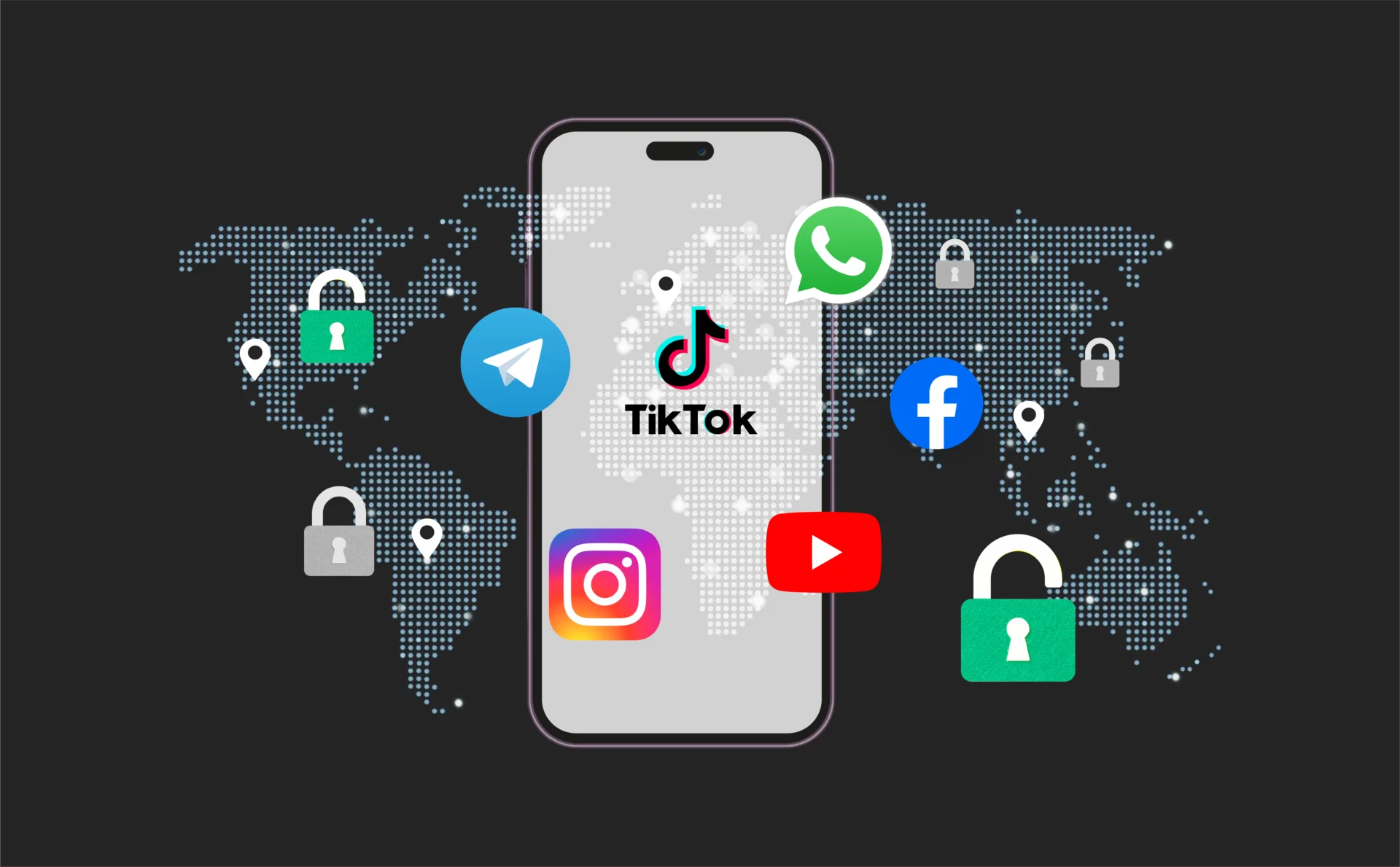
How to Get Unblocked Social Media Anywhere in the World
Social media should be open to everyone, but in many places it isn’t. Schools, offices, and even whole countries put up blocks that stop you from using your favorite apps. If you need unblocked social media, there are safe ways to get around these restrictions. This guide will show you why platforms get blocked and what you can do to access them anywhere in the world.
Why social media platforms get blocked
Social media gets blocked for different reasons. The most common are:
- Government censorship – Some countries cut off platforms to control what people see and share.
- Schools and workplaces – Blocks are set to stop distractions and keep focus on tasks.
- Bandwidth limits – Video apps like YouTube or TikTok eat up too much network speed.
- Security and privacy – Fear of scams, leaks, or harmful content often leads to restrictions.
- Content filtering – Schools and public networks sometimes block sites to keep out inappropriate material.
Understanding these reasons makes it easier to choose the right way to access unblocked social media safely.
Methods to access unblocked social media
Here are the main ways people get around restrictions. Each has good and bad sides:
Use a proxy server
A proxy hides your real IP. Residential proxies look natural because they use real devices. Rotating proxies switch your IP often. Datacenter proxies are cheaper but easier to block. Free ones are usually slow or unsafe.
Learn more about the best YouTube proxies!
Connect through a VPN
A VPN encrypts your traffic and sends it through a secure server. This helps you bypass most blocks and stay private. The downside is that strict firewalls sometimes detect and stop VPNs.
Try Smart DNS
Smart DNS changes how your device resolves domains. It’s fast and good for geo-blocks, but it doesn’t hide your IP. In tough regions, it may not work.
Use the Tor browser
Tor bounces your connection across different nodes. It’s strong against censorship but much slower. Some sites also block Tor exits.
Browser fingerprint masking
Even if you change your IP, platforms can still track you through your browser setup. Tools that mask or change your fingerprint, like anti-detect browsers, help reduce this risk. Pair them with proxies if you run multiple accounts.
Quick comparison table
| Method | Best For | Downsides |
| Proxy server | School/work restrictions; multiple accounts | Free proxies are unreliable |
| VPN | Privacy + access across regions | Can be detected or blocked |
| Smart DNS | Fast access to geo-blocked content | No IP masking; limited in strict regions |
| Tor browser | Bypassing censorship with privacy | Slow speeds; some sites block Tor |
| Fingerprint masking | Multi-account setups + advanced users | Requires setup; not in regular browsers |
Popular platforms often blocked
Here are the social networks most frequently restricted:
- YouTube – Blocked in schools and some countries to prevent distractions and control news.
- Facebook – Limited in offices and censored in some regions for political reasons.
- Instagram – Restricted in schools and censored in regions where visual activism is sensitive.
- X (Twitter) – Often blocked due to political discussions and activism.
- TikTok – Banned in workplaces and some countries over security concerns.
- Reddit – Restricted in offices and censored in regions with open political debates.
- Snapchat & WhatsApp – Limited for productivity in schools/offices and sometimes censored for encrypted chats.
Safe practices for accessing unblocked social media
- Check legality – In some countries, bypassing blocks can be risky. Always understand local laws.
- Use trusted providers – Avoid free VPNs or proxies that may log or sell your data.
- Pair proxies with anti-detect browsers – Essential if you manage multiple accounts on the same platform.
- Protect your data – Never log in through tools you don’t trust; always secure your devices.
FAQ
Can social media platforms detect if I use a proxy?
Yes. Platforms can detect datacenter proxies or repeated login patterns. Residential or rotating proxies with fingerprint masking reduce this risk.
Why do free VPNs or proxies often fail?
They are slower, overcrowded, and easily blocked. Many also collect your data. Paid tools are more reliable.
Is it legal to bypass social media restrictions?
In schools and workplaces, it usually just breaks policy. In some countries, bypassing government blocks may be illegal. Always check local rules.
Are VPNs or proxies better for unblocking?
VPNs secure your traffic, while proxies are better for managing multiple accounts. The best choice depends on your use case.
How can I access unblocked social media without getting caught?
Use residential proxies or a VPN with stealth mode. Combine them with an anti-detect browser for extra protection.
Conclusion
Unblocked social media keeps you connected, whether for work, school, or personal life. The right method depends on the type of restriction—VPNs and proxies work well in most cases, while Tor and fingerprint masking help against tougher blocks. Choose a safe and reliable setup, and you’ll stay connected without interruptions.